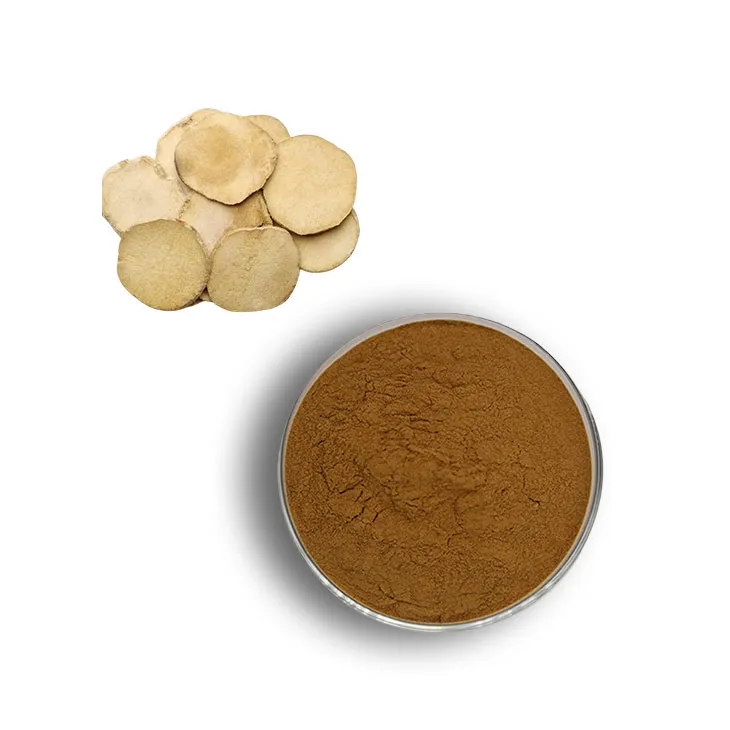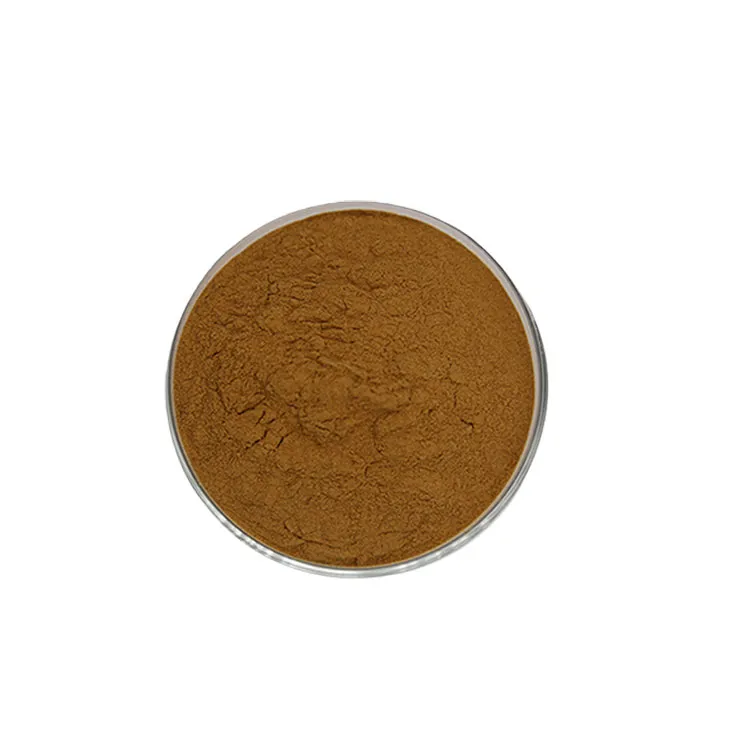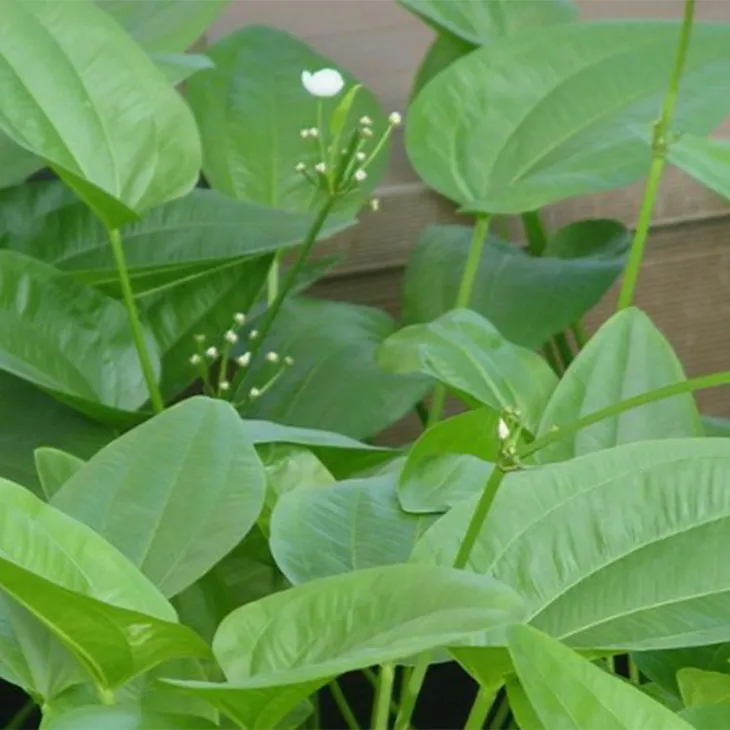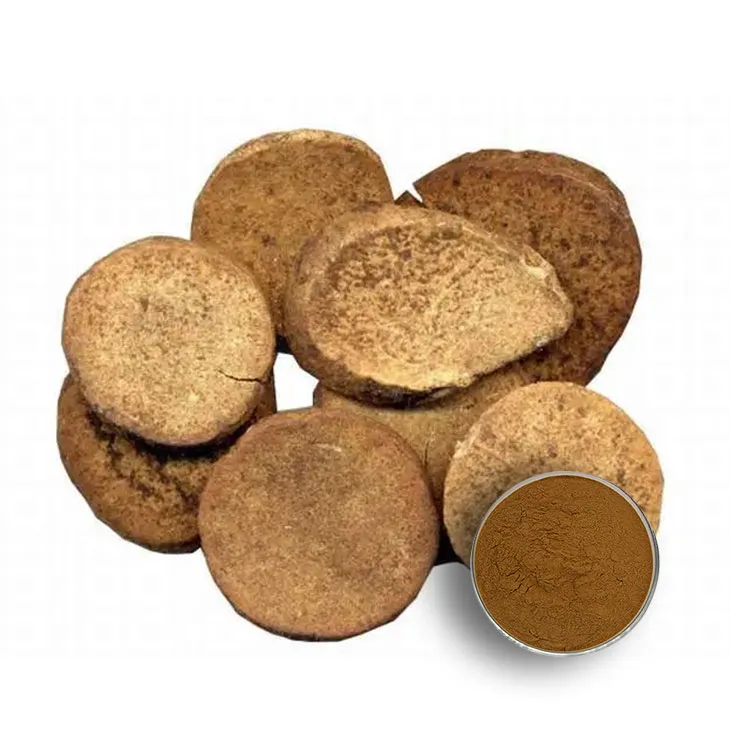- 0086-571-85302990
- sales@greenskybio.com
The Best Herb for Treating Anxiety and Insomnia: Alisma Extract.
2024-11-12

Introduction
Anxiety and insomnia are two of the most prevalent health issues in modern society, significantly affecting people's quality of life. A large number of individuals around the world struggle with these problems on a daily basis. Traditional medicine has long been exploring natural remedies for such conditions, and one herb that shows great promise is Alisma orientale. This article will delve into the potential of Alisma orientale extract as an effective treatment for anxiety and insomnia.

The Prevalence of Anxiety and Insomnia
In today's fast - paced world, the prevalence of anxiety has reached alarming levels. Stressors such as work pressure, financial difficulties, and relationship problems are constantly bombarding individuals. Anxiety can manifest in various forms, including generalized anxiety disorder, panic disorder, and social anxiety disorder. These conditions can lead to a range of symptoms such as restlessness, excessive worry, and difficulty concentrating.
Insomnia, on the other hand, is often closely related to anxiety. It is estimated that a significant proportion of the population suffers from some form of insomnia. Insomnia can be acute or chronic, and it includes difficulties in falling asleep, staying asleep, or having non - restorative sleep. People with insomnia often experience daytime fatigue, irritability, and decreased productivity.

Traditional Medicine and Herbal Remedies
Throughout history, traditional medicine systems such as Traditional Chinese Medicine (TCM) have relied on herbs to treat various ailments. Herbs are considered a natural alternative to synthetic drugs, often with fewer side effects. They work by interacting with the body's own physiological mechanisms in a holistic way.
The Role of Alisma orientale in Traditional Medicine
Alisma orientale, also known as Oriental Waterplantain Rhizome in TCM, has a long - standing history in traditional medicine. It has been used for centuries to treat a variety of conditions, especially those related to fluid metabolism and the urinary system. However, recent research has also begun to explore its potential in treating anxiety and insomnia.

Mechanisms of Action for Alisma orientale Extract in Treating Anxiety
The extract of Alisma orientale may act on multiple physiological mechanisms related to the body's stress response and anxiety regulation.
Modulation of Neurotransmitters
One of the key ways in which Alisma orientale extract may relieve anxiety is through the modulation of neurotransmitters. Neurotransmitters play a crucial role in the communication between nerve cells in the brain. For example, imbalances in neurotransmitters such as serotonin, dopamine, and gamma - aminobutyric acid (GABA) are often associated with anxiety disorders.
Alisma orientale extract may influence the levels or activity of these neurotransmitters. It could potentially increase the availability of serotonin, which is known as the "feel - good" neurotransmitter. Higher levels of serotonin are associated with improved mood and reduced anxiety. Additionally, it may also enhance the function of GABA, an inhibitory neurotransmitter that helps to calm the nervous system by reducing excessive neuronal activity.
Effects on the Nervous System
The extract may also have direct effects on the nervous system to reduce excessive arousal. In a state of anxiety, the nervous system is often in a hyper - aroused state. Alisma orientale extract may act on nerve cells to dampen this excessive arousal, bringing the nervous system back to a more balanced state. This could be achieved through various mechanisms, such as modulating the activity of ion channels in nerve cells or influencing the release of certain neuropeptides.

Mechanisms of Action for Alisma orientale Extract in Treating Insomnia
In addition to its potential in treating anxiety, Alisma orientale extract also shows promise in alleviating insomnia.
Regulation of Circadian Rhythm
The body's circadian rhythm is a natural internal clock that regulates various physiological processes, including the sleep - wake cycle. Disruptions to this rhythm can lead to insomnia. Alisma orientale extract may help to regulate the circadian rhythm by interacting with the body's internal clock mechanisms. It could potentially affect the expression of certain genes involved in circadian regulation or modulate the activity of hormones that are key players in the sleep - wake cycle, such as melatonin.
Promotion of Relaxation
By reducing anxiety and calming the nervous system, Alisma orientale extract also promotes relaxation. When the body and mind are in a relaxed state, it is easier for people to fall asleep and stay asleep. The extract may achieve this through its effects on neurotransmitters and the nervous system, as mentioned previously. It may also have a direct impact on muscle relaxation, reducing physical tension that can interfere with sleep.
Research Evidence on Alisma orientale Extract
Although research on the use of Alisma orientale extract for anxiety and insomnia is still in its early stages, there are some promising findings.
Animal Studies
In animal studies, Alisma orientale extract has shown some positive effects on anxiety - like behaviors. For example, in laboratory mice subjected to stress - inducing conditions, treatment with the extract led to a reduction in anxiety - related behaviors such as increased exploratory activity in an open - field test. These results suggest that the extract may have anxiolytic properties in animals.
In terms of insomnia, animal studies have also indicated that Alisma orientale extract can improve sleep - related parameters. Mice treated with the extract showed changes in their sleep patterns, such as increased total sleep time and decreased sleep latency (the time it takes to fall asleep).
Human Studies
In human studies, preliminary investigations have been carried out. Some small - scale clinical trials have reported that patients with mild to moderate anxiety who took Alisma orientale - based supplements experienced a reduction in anxiety symptoms over a certain period. However, more large - scale, well - designed human studies are needed to confirm these findings and further explore the optimal dosage and treatment duration.
For insomnia, human studies are even more limited. But some anecdotal evidence from patients who have used herbal preparations containing Alisma orientale suggests that it may help improve their sleep quality. These reports highlight the need for more rigorous scientific research in this area.
Potential Advantages of Alisma orientale Extract over Conventional Treatments
There are several potential advantages of using Alisma orientale extract compared to conventional treatments for anxiety and insomnia.
Fewer Side Effects
Many synthetic drugs used to treat anxiety and insomnia come with a range of side effects. For example, benzodiazepines, which are commonly prescribed for anxiety, can cause drowsiness, dizziness, and dependence. Antidepressants used for anxiety may also have side effects such as nausea, sexual dysfunction, and weight gain. In contrast, Alisma orientale extract, being a natural herb extract, may have fewer side effects. While it is not completely without risk, the potential side effects are likely to be milder and less common.
Holistic Approach
Alisma orientale extract works in a holistic way by interacting with the body's natural physiological mechanisms. It does not simply target a single symptom or receptor like some synthetic drugs. Instead, it may have multiple effects on the body, addressing the underlying causes of anxiety and insomnia in a more comprehensive manner. This holistic approach may lead to more sustainable and long - lasting results.
Challenges and Future Directions
Despite the potential of Alisma orientale extract as a treatment for anxiety and insomnia, there are still several challenges that need to be addressed.
Standardization of Extract
One of the main challenges is the standardization of the Alisma orientale extract. Different extraction methods can result in extracts with varying compositions and potencies. This lack of standardization makes it difficult to compare results from different studies and ensure consistent therapeutic effects. Future research should focus on developing standardized extraction methods to ensure the quality and efficacy of the extract.
Further Research
More in - depth research is also needed to fully understand the mechanisms of action of Alisma orientale extract. While the current research has provided some insights, there are still many unanswered questions. For example, the exact molecular targets of the extract in the body need to be identified. Additionally, large - scale, randomized, double - blind, placebo - controlled clinical trials are required to firmly establish its efficacy and safety in treating anxiety and insomnia in humans.
Conclusion
Anxiety and insomnia are complex health issues that affect a large number of people. Alisma orientale extract shows great potential as a natural treatment option for these conditions. Its potential mechanisms of action in modulating neurotransmitters, reducing nervous system arousal, regulating circadian rhythm, and promoting relaxation make it an interesting candidate for further research. However, more research is needed to overcome the challenges such as standardization and to confirm its efficacy and safety in humans. If these challenges can be addressed, Alisma orientale extract may become an important addition to the arsenal of treatments for anxiety and insomnia, offering a natural and potentially more holistic alternative to conventional drugs.
FAQ:
What is Alisma orientale?
Alisma orientale is a plant that has a long - standing presence in traditional medicine. It has certain properties that are being explored for their potential benefits in treating various health conditions.
How does Alisma orientale extract relieve anxiety?
The extract of Alisma orientale may act on the body's physiological mechanisms associated with the stress response. It has the potential to modulate neurotransmitters and reduce excessive arousal in the nervous system, which in turn can relieve anxiety symptoms.
What role does Alisma orientale extract play in treating insomnia?
When it comes to insomnia, Alisma orientale extract may be helpful in regulating the body's circadian rhythm. It also promotes relaxation, which can make it easier for individuals to fall asleep and have good - quality sleep.
Are there any side effects of using Alisma orientale extract for anxiety and insomnia?
Currently, more research is needed to fully understand the potential side effects of using Alisma orientale extract for these purposes. However, as with any herbal remedy, it's important to use it under proper medical guidance to ensure safety.
How can one use Alisma orientale extract for anxiety and insomnia?
The appropriate way to use Alisma orientale extract for these conditions has not been standardized yet. It could potentially be used in various forms such as tinctures or supplements, but this should be determined in consultation with a healthcare provider.
Related literature
- Title: Study on the Efficacy of Alisma orientale Extract in Anxiety Treatment"
- Title: "The Impact of Alisma orientale on Sleep Regulation: A Comprehensive Review"
- Title: "Alisma orientale in Traditional Medicine for Insomnia and Anxiety"
- ▶ Hesperidin
- ▶ Citrus Bioflavonoids
- ▶ Plant Extract
- ▶ lycopene
- ▶ Diosmin
- ▶ Grape seed extract
- ▶ Sea buckthorn Juice Powder
- ▶ Fruit Juice Powder
- ▶ Hops Extract
- ▶ Artichoke Extract
- ▶ Mushroom extract
- ▶ Astaxanthin
- ▶ Green Tea Extract
- ▶ Curcumin
- ▶ Horse Chestnut Extract
- ▶ Other Product
- ▶ Boswellia Serrata Extract
- ▶ Resveratrol
- ▶ Marigold Extract
- ▶ Grape Leaf Extract
- ▶ New Product
- ▶ Aminolevulinic acid
- ▶ Cranberry Extract
- ▶ Red Yeast Rice
- ▶ Red Wine Extract
-
Tongkat Ali Extract
2024-11-12
-
Dandelion Root Extract
2024-11-12
-
Tinospora cordifolia extract
2024-11-12
-
Reishi mushroom extract
2024-11-12
-
Jujube Extract
2024-11-12
-
Calendula Extract
2024-11-12
-
Black Pepper Extract
2024-11-12
-
Ginseng Root Extract
2024-11-12
-
Grapefruit Seed Extract Powder
2024-11-12
-
Andrographis Paniculata Extract Powder
2024-11-12





















